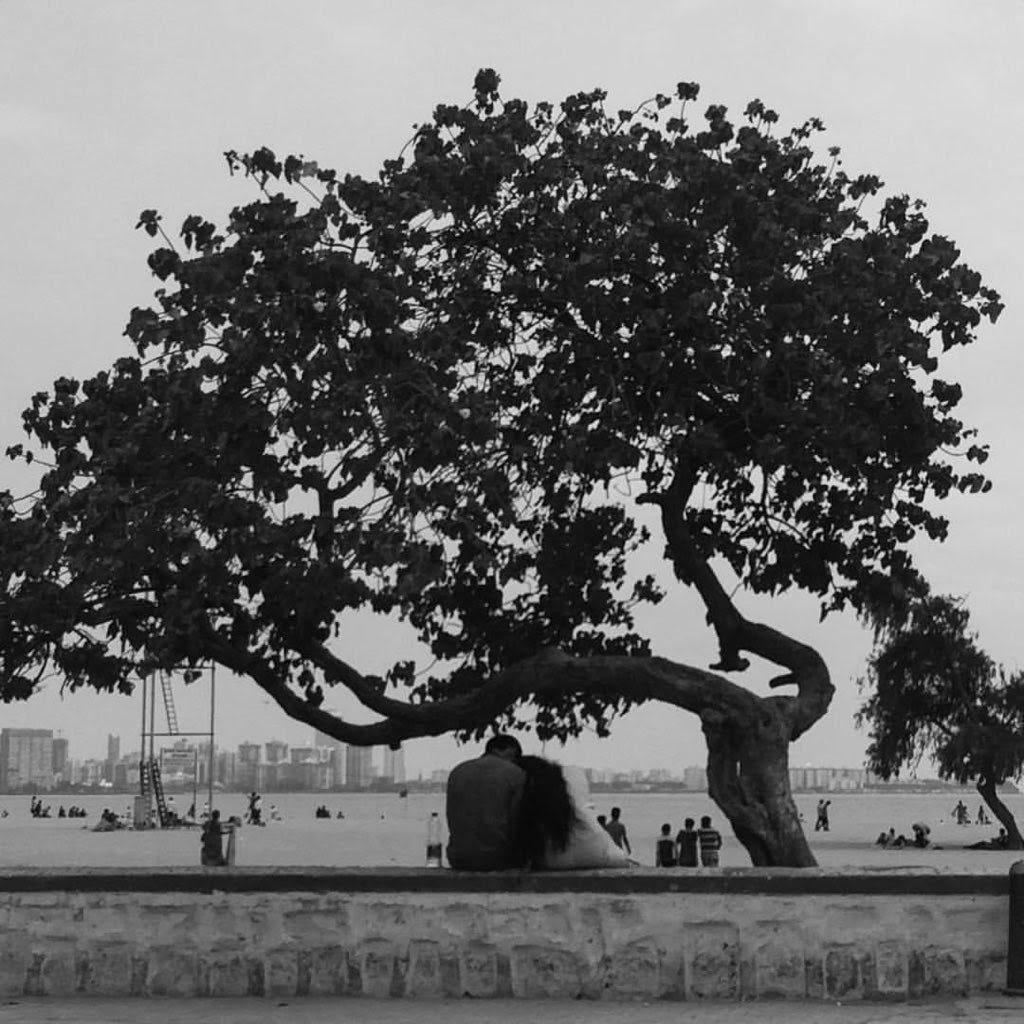I haven’t put out an edition of this newsletter for quite a long time now - almost 4 months at the time of writing this one. In between, I plugged Random Access Memory on Twitter when an influential account volunteered to amplify newsletters that were in their nascency. This resulted in a significant uptick (relatively speaking) in unique visitors and subscribers to my newsletter. None of these subscribers has ever seen one of these in their inboxes. So, for their benefit, I’d like to briefly talk about it.
I started sending out this newsletter on the recommendation of a good friend. I’d have passionate conversations with her about things I’ve read and watched, things I loved with every atom of my being, and things I hated with a vengeance. Why don’t you write a newsletter to collate all of this, she’d ask. I thought it was a great idea. But, from the very beginning, I didn’t want Random Access Memory to just be a collection of ‘recommendations.’
I felt that it’s high time I start writing for myself. For the last few years, I had been writing regularly for a host of Indian publications. While these assignments were a great way for me to learn about new subjects and hone my writing skills, I always approached these pieces with a sense of detachment. The writing never demanded me to ask questions of myself. As I grow older, I’ve been thinking about a lot of things, topics that are difficult to visit, topics whose pool I’ve dipped my toes in but refused to take a dive in. Writing for online publications gave me an excuse to almost avoid thinking. Joan Didion said - “I don't know what I think until I write it down.” Perhaps, I could use this newsletter not only as a writing gym (thanks Amit Verma) but also as a place to think.
Ava from bookbear express writes,
“… If the choice is between continuing to look and looking away, you could say that writing is a state of consciousness that allows me to look without flinching. If we treat writing as a form of thinking, we can appreciate its benefits in a way that isn’t focused on objective output. I’ve heard a lot of friends say things like, “Oh, I’ve tried to write more stories, but they weren’t any good.” I think that rewarding writing practices can be focused purely on journaling—on clarifying your lived experience to yourself. What if we wrote to have conversations with ourselves that we otherwise couldn’t have? What if we wrote to keep a record of thoughts that otherwise wouldn’t exist at all?”
This, I find to be a wonderful way to think about writing. It’s also how I want to approach writing this newsletter. So, why haven’t I written in a while? Starting late last year, I was putting out an edition of the newsletter intermittently. The gap between editions was erratic at best, but I almost always managed to send out one or two thoughtfully (in my honest opinion) compiled newsletters in a month. Then in May, mental fatigue hit me in a way that it hadn’t throughout the pandemic thus far. I’m not sure what bought this about. Regarding writing, I grappled with two things in particular. One, that writing in a time of such intense suffering is pointless. Two, writing about inane things, a book, a movie, a dinosaur, is even more so.
Thinking about these points in the months that followed allowed me to better understand why I write this newsletter. My writing isn’t likely to alter things outside the sphere of my life. This much I know. But, it gives me comfort. It helps me make sense of entangled threads in my head and make a comforter out of them. All this time I’ve been unable to write, I now realize it was because I was too tired to do the entangling. But now, that I am better, I’d like to get back to compiling these newsletters past the midnight hour. That, this space is largely for personal rumination isn’t lost on me and shouldn’t be lost on you too. I write, not to inform others. I write mostly to inform myself.
But, this doesn't absolve me from the responsibility to write responsibly. I try to not perpetuate harmful notions and over time, I hope to use this space to platform writers whose work I love and whose voices I feel should be heard louder amidst the din. So, yes. Writing isn’t pointless. It isn’t pointless for me. And this brings me to the second point - what do I write about.
I write about anything that interests me. This could be a topic I have had a long-standing interest in or something I’ve come across in recent times which I want to think more about. I write about whatever is in my mind at the time. The charm of test-match cricket. The extinction of dinosaurs. The greatest snack on Earth. These random, seemingly inane things are almost always irrelevant in the machinations of the ongoing times. But, it doesn’t matter. I write to think. I try to write so I can be.
If there is something I aspire for Random Access Memory, it’s for it to become a vessel for me to think and a safe space for me to be. This quote from Ava’s bookbear express captures this essence,
“I’m trying to think of writing less as doing and more as being. A passive state, almost: a way of existing in the world. Something that takes me away from myself, and in doing so draws me deeper inwards.”
I hope this newsletter is as fun and informative for you as it is for me. Writing and compiling it is a calming and therapeutic presence for me in these troubled times. I hope it brings you at least a fraction of the comfort it brings to me.
This edition is dedicated to A and N for always sampling my writing and giving me honest feedback, F for pushing me to start this endeavor and listening to my endless ramblings, and S for countless WhatsApp discussions on writing, life, and everything around it.

Reads (long or not)
Vijeta Kumar is one of my favorite writers and her new short story is all sorts of breathtaking. She lays plain the complicated axes of discrimination in a way that only she can. I highly recommend it: Under the Trumpet Tree
Sticking with writers whose every piece I’ll read, Elizabeth Kolbert has a new one from the climate beat at the New Yorker. It’s richly detailed, finely observed, and beautifully written. Typical. Here is the piece: The Lost Canyon Under Lake Powell.
I love a good short-story collection and Te-Ping Chen’s Land of Large Numbers was excellent. Her stories have simple narratives but I loved how humanity shone through in every one of them. Chen’s prose is wonderful and she treats her characters with empathy and a keen eye.
Vishal Katariya has a weekly compilation of long-form journalism which I really enjoy going through - Kat’s Kable. Among the many such compilations I subscribe to, Kat’s Kable is one of the most varied and very best.
To Watch
Pa Ranjith’s Sarpatta Parambarai on Amazon PrimeVideo was epic in the truest sense of the word. The fight scenes were handsomely staged and Ranjith managed to craft an incredible training montage that transcended tropes. Damn. I really missed watching this on a larger screen!
I loved the documentary film Katiyabaaz, which focuses on the issue of electricity shortage and mismanagement in Kanpur but delivers some profound truthism via its two central characters - a pragmatic IAS officer and boisterous electricity fixer who has the magnetism of a titular character.
Modern Love S02 recently released on Amazon PrimeVideo. I’m almost done watching it and can’t help but rue that not one of them came even close to recreating the sublime charm and heart of the first episode in S01: When the Doorman Is Your Main Man, starring Christan Milloti in remarkable form.
To Listen
Two songs with opposite feels: A Quiet Family by Marco Beltrami, composed for the OST of A Quiet Place takes me to a place of serenity. Neeye Oli composed by artistes Shan Vincent de Paul and Navz-47 for Sarpatta Parambarai’s soundtrack has amazing and infectious energy.
Two Bollywood songs: Ranjha from Shershah has an Amit Trivedi Darya-Esque feel. Ananya from Toofan has Shankar Ehsaan Loy teaming up with Arijit Singh to create a beautifully simple melody.
This poem by Arundhati Subramaniam’s collection When God is A Traveler evoked in me the same feelings Uday Prakash’s Kuch Ban Jaate Hai (Let Us Become Something) did. I absolutely loved it.
Bhakti (with some adulteration)
by Arundhati Subramanium
If you were coffee
I wouldn’t live my life
in a coffee shop
getting my fix
on your beans.
Public lust isn’t my thing.
Allow me
some deluxe delusions.
Allow me to uncork you
in the middle
of days that rattle like Coke cans,
blow through alleys like Sunday tabloids,
so I can steal a whiff,
a whiff, no more,
of your crazy liquor.
Decant into my hipflask. Settle down in my pocket. Stay illicit.
Thanks for reading this edition of the newsletter. This newsletter is a potpourri of random thoughts littered with recommendations galore. If you liked reading it, do consider subscribing and sharing it with friends. Also, this newsletter tends to appear in Gmail’s Promotions tab. Consider filtering it to Inbox for easier visibility.
Follow me on Twitter here. For more of my writing, a portfolio of published work is here. I’d love to hear what you think about the newsletter. Don’t hesitate to get in touch if you think there is something I could do better, or just to say hi.


